The strange exclusivity of Dhaka University Central Library
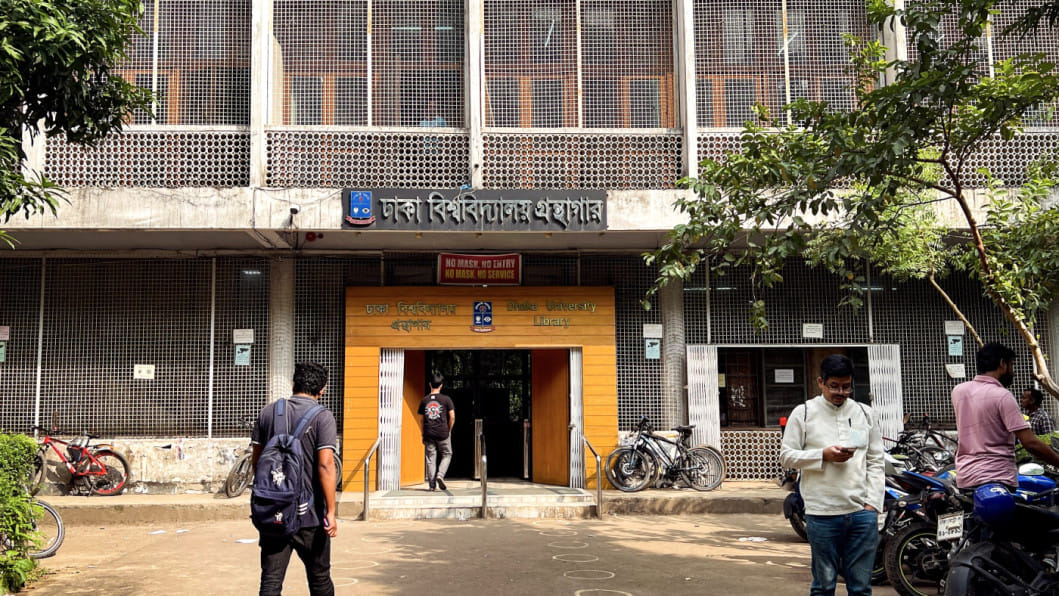
The reader in me loves to partake in the guilty pleasure of spending more time browsing books than actually reading them. Walking the aisles while my eyes glide through the spine-lined shelves — taking in the creases, engravings on leather, the colours of the binding clothes, it always seemed to be a walk most satiating. Perhaps, to cover up for all the moments I have spent just looking at books, my university central library has outlawed doing so.
It's not allowed for the students to physically browse bookshelves in the Dhaka University Library. My response to the existence of such a ruling was multiple bouts of disbelief. But as much as I would like to deny it, it is true.
On my recent visit to the central library, I climbed the stairs to reach an antechamber with two doors. One of them led to a reading room fully occupied with students and the other opened to a hall packed with bookshelves. My heart leaped to enter this door. But wait, doing so was physically impossible. The door was barred with a white horseshoe shaped wooden table. Behind the table, right in the middle, sat a man who was reasonably oblivious to my presence and from the right corner, a stack of chits stared at me, mocking the confusion on my face.
I, and my friend who accompanied me, approached the man to express our desire to go inside and have a look at the books.
This time, the disbelief was on his face.
When we reiterated our plea, he sealed away all traces of emotion and replied, "No," adding, "if you want any particular book, write it on the chit and I'll fetch it for you."
The chits fluttered a little under the artificial breeze of the electric fan, as if to emphasise their importance in this library whose rules I would slowly be unfurling.
Before I went for another visit to the library, I realised that I've been there only twice, in the three years I have been studying in Dhaka University. This is quite odd for someone who hops around the handful of bookstores in Dhaka for recreation.
The first time I visited the central library was some day in the first week of our first semester. My high expectations were crushed, at least olfactorily, because of the persisting radiation from the lavatories. If you have been to the central library, I bet you have been welcomed the same way. My solo library hangout was cut short and the pandemic arrived in a few weeks.
Dissatisfied with my explanation for not visiting the central library often enough, I became curious about the frequency of visits by other students.
I approached a friend, Anika Shachie, a student at the Department of English, who told me she also almost never visits the central library. Her department library is well-equipped with all the resources she usually needs. Upon my inquiry on whether she is allowed to physically browse and pick books from the shelves, her answer was, "Of course!"
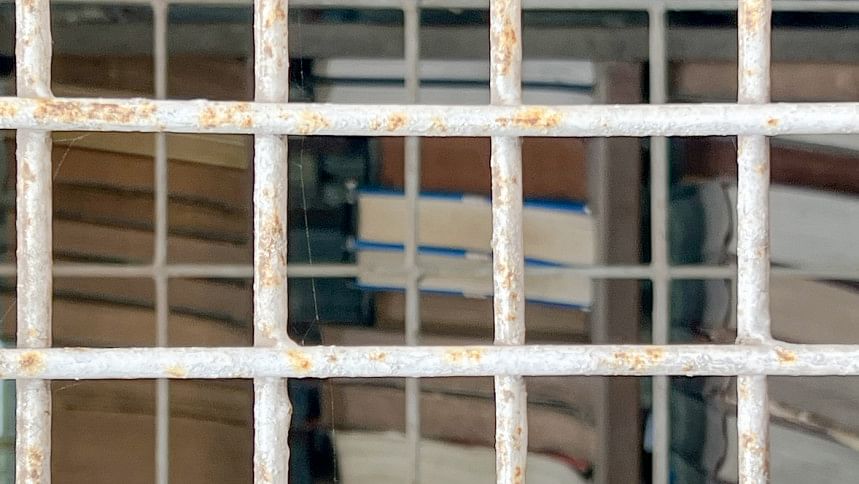
Several students from the Department of Women and Gender Studies, Institution of Business Administration, and the Department of Electrical and Electronic Engineering also expressed the rarity of their visits to the central library and their satisfaction with the department libraries.
Then, if people so rarely visited the central library, why are the reading rooms always packed? The books on the tables told the old BCS tales but my interest was in the regular library goers' opinion on that absurd rule that kept me from browsing books.
To my surprise, out of the five people I randomly talked to, none had any objection to it. Promiti Karmaker, student of the Department of Music, mentioned, "This rule is important to keep the books safe. Also, not having to look for books on my own adds to the convenience."
The information desk also cited security as a reason. They also mentioned that if students were allowed to freely browse the collection, the shelves would be completely dishevelled, making it a nightmare to find books upon demand. Ironic, because this university has an entire department dedicated to Information Science and Library Management.
Dr. B M Mainul Hossain, Professor at Institute of Information Technology, University of Dhaka, opined that stopping students from physically accessing books to maintain security is way behind current times. "If retail stores can have CCTVs, and RFID (Radio-Frequency IDentification) tags to prevent misplacement of products, why can't we do the same for our libraries?"
The approach currently being followed by the Dhaka University Central Library is a constriction to the pursuit of knowledge. Not all books can be fetched by a librarian through a chit. Not all books are read because they got listed in the course outline by a teacher. Sometimes, we pick up a book because the title spoke to us, the cover appealed, or the name of the author brought back memories of some other book we enjoyed a long time ago. A book can tell us it needs to be read, though we had no prior plans to read it. This impulsive side of reading cannot be captured in the ask-and-fetch mechanism Dhaka University Library is currently employing.
The table blocking the entrance to the room containing books, the lock hanging on the little wooden door that leads to the same room — these images conjure up a realisation I cannot ignore. Students are being barred from knowledge in an institution that is supposed to live by the motto "Education is light". By creating rules that stop students from freely exploring resources, what the library is doing is akin to casting a curtain between the lamp and the students, keeping them in semi-darkness.
This is not expected of a library that is the oldest of its kind in Bangladesh. There are complaints about this library not housing enough books. But why does it matter? Why does the number of books matter when we can't lay eyes on what the number really represents — the actual books.
Noushin Nuri is an early bird fighting the world to maintain her sleep schedule. Reach her at [email protected]

 For all latest news, follow The Daily Star's Google News channel.
For all latest news, follow The Daily Star's Google News channel. 

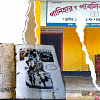
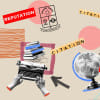

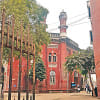
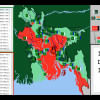


Comments